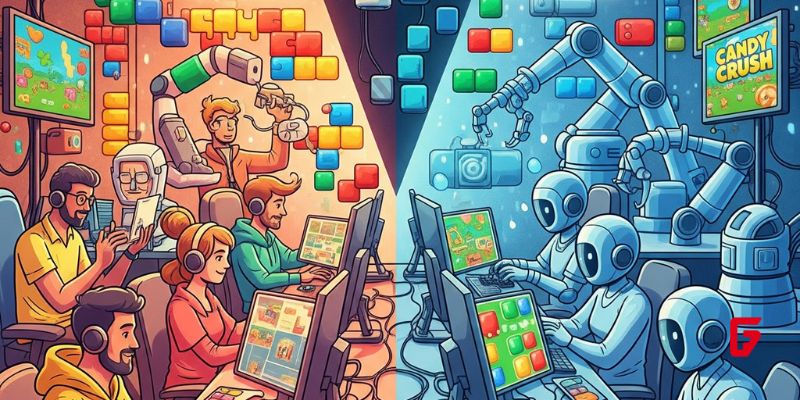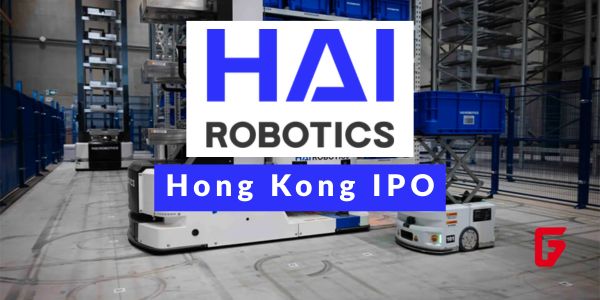Startups & Business News

It’s a scenario out of a modern tech thriller: game developers who helped design AI tools found themselves out of work, with those same AI systems replacing their roles. This is the reality reportedly facing staff at King, the studio behind Candy Crush Saga—and it’s sparking intense debate about the future of the games industry.
From Contributors to Casualties
In early 2024, King’s parent company, Activision Blizzard, initiated layoffs affecting hundreds of employees, including those at Candy Crush’s development studio. What’s particularly controversial is that some of these staff had actively contributed to the AI-powered tools that are now being used in their stead.
The very AI tools built for optimizing level design, play-testing, and player engagement are now performing critical jobs previously done by humans. According to reports, the company is leaning hard into automation for tasks like content creation and quality assurance. Think machine-generated levels and automated bug detection—all at a much faster pace than any human team could keep up with.
Industry Implications: Disruption or Opportunity?
This case at King is more than a single incident; it’s a signal of broader shifts across the gaming sector. As game studios invest in more advanced AI and automation, concerns mount about job security, the future of creative work, and the human role in digital entertainment.
Developers’ skills and experience are being leveraged not just to build games, but also systems that can replace people.
AI-generated content can potentially lead to faster game updates, personalized user experiences, and cost savings for studios.
The tradeoff: possible loss of creative diversity and the unique touch that only human designers bring to celebrated franchises like Candy Crush.
The Debate: Is This Progress?
There’s no denying the efficiency gains brought by automation, but this transition stirs up some serious questions:
Are we sacrificing creativity for speed?
Can an algorithm understand player fun as well as a team of designers?
Will other studios follow this model, risking similar fates for their teams?
What’s certain is that this trend is unlikely to stop. The digital games industry is looking for ways to balance AI-powered productivity with the value of human creativity.
The move by King’s parent company highlights the complex intersection of innovative technology and workforce disruption. For professionals in gaming, it’s a stark reminder: adapting to the age of AI may well mean building the very systems that could one day reshape, or even eliminate, your own job

futureTEKnow
Editorial Team
futureTEKnow is a leading source for Technology, Startups, and Business News, spotlighting the most innovative companies and breakthrough trends in emerging tech sectors like Artificial Intelligence (AI), Robotics, and the Space Industry.
Discover the companies and startups shaping tomorrow — explore the future of technology today.
Most Popular
Trending Companies
Latest Articles

Dwelly Raises $93M to Supercharge AI-Powered UK Rentals Roll-Up
London startup Dwelly just landed $93M to snap up UK rental agencies and inject AI smarts. Founders from Uber and

Encord Raises $60M Series C: Fueling Physical AI Data Wave
Encord just landed $60M in Series C funding to supercharge data tools for physical AI. Founders Eric Landau and Ulrik

Foodforecast Raises €8M Series A to Slash Ultra-Fresh Food Waste with AI
Foodforecast, a Cologne AI foodtech firm, just scored €8M in Series A funding led by SHIFT Invest. Their tools predict

AI-Driven Operational Excellence: How Leaders Scale Ownership, Discipline, and Continuous Improvement in 2026
In 2026, AI scales operational excellence fundamentals—clear ownership, disciplined execution, and continuous improvement—letting leaders focus on outcomes while systems handle

VoiceLine raises €10M to scale voice AI for enterprise frontline teams
Munich-based VoiceLine has closed a €10M Series A round to grow its voice AI platform for frontline sales and service

AI-Driven Logistics & Distribution Transformation: From Insight to Scalable Impact
AI is redefining logistics transformation—from network design to real-time execution. This article explores how data-driven insight, intelligent automation, and scalable

Hai Robotics Hong Kong IPO: From Startup Funding to Warehouse Robot Leader
Shenzhen’s Hai Robotics, pioneer in ACR warehouse robots, files for HK IPO after raising over $500M in funding rounds led

AI-Enabled Process Engineering & Continuous Improvement: Designing Systems That Learn
Explore how AI transforms process engineering and continuous improvement into self-learning systems. This article explains how organizations can design operations

Ouster Acquires StereoLabs: Unified Physical AI Sensing Platform Launches
Ouster’s $35M StereoLabs acquisition fuses lidar and ZED cameras into end-to-end Physical AI sensing. Founders Cecile Schmollgruber and team drive

Bretton AI Lands $75M Series B Funding to Scale AI Agents for Financial Crime and AML/KYC Compliance
Bretton AI’s $75M Series B modernizes AML KYC compliance via AI agents, slashing staffing costs for banks and fintechs like

Axiom Space Raises $350M to Build Commercial Space Station and NASA Spacesuits
Axiom Space has locked in a fresh $350M raise to push its commercial space station and NASA lunar spacesuits toward

Santé Raises $7.6M Seed: AI Fintech Revolution for Wine and Liquor Retail
New York startup Santé secures $7.6M seed to build AI-powered POS for liquor stores, tackling regs & inventory woes after
futureTEKnow is focused on identifying and promoting creators, disruptors and innovators, and serving as a vital resource for those interested in the latest advancements in technology.
© 2026 All Rights Reserved.





